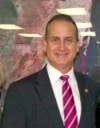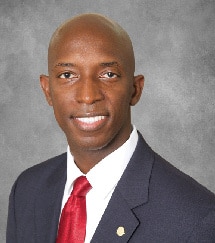Concerns regarding the South Florida Jamaican Diaspora – Letter to the Editor
by: Dahlia A. Walker-Huntington, Esq.
Ft. Lauderdale – There has been debate over the past few weeks as 500 Jamaicans world wide prepare to convene in Kingston, Jamaica for the second bi-annual Jamaican Diaspora Conference, June 15 and 16, 2006. The criticism is that some who want to attend the Conference have not been invited, that the list of delegates should be published, that the list was purged with Prime Minister Portia Simpson-Miller’s supporters, and that the Southern United States Board is “elitist” and lacks transparency.
In June 2004 the government of Jamaica and several private sector organizations convened the first Jamaican Diaspora Conference in Kingston, Jamaica. Two Hundred and fifty Jamaicans from the United States, Canada and the United Kingdom joined delegates in Jamaica and spent two days discussing issues pertaining to Jamaica and the overseas community.
I was elected one of the three United States Board Members to represent the Southern United States. The seven-member Board Members’ primary responsibility is to meet with the Minister of State in the Ministry of Foreign Affairs who has specific responsibility for Diaspora Affairs twice per year and to advise him on issues of concern to the Diaspora. In carrying out that mandate, the Board Members are required to be in regular contact with their various communities to identify the issues.
Since returning from Conference 2006, as Board Member I invited the Conference invitees along with several Jamaican experts in the community to strategy meetings to organize the Diaspora Movement. Committee Chairs were subsequently appointed to focus on areas centered on philanthropy, economic empowerment and political galvanization. A brochure explaining the Jamaican Diaspora movement, listing the Committee Chairs’ contact information and area of responsibility, and an open invitation to join the movement and participate in the coming together of the Jamaican Diaspora was circulated in the community.
Delegates from the Southern United States for the 2006 Conference were selected by consultation between The Consul General of Miami and myself on the basis of geographic location, desire to attend, areas of expertise, past involvement in the Jamaican community either individually or through an organization, and potential for future involvement in the Diaspora Movement.
The Diaspora Conference is not a rally or a convention where one sits and listens to a series of speeches. It is an interactive Conference where a panel presents on a topic and delegates dialogue about the issues and offer executable solutions. It is not a talk shop. It is not an “event” for people to come and “profile”.
The real work of the Conference takes place in pre-conference planning by the selected delegates and continues when the delegates to the Conference return to the Diaspora and interact with their Board Member and the Jamaican overseas community.
The 2004 list of delegates was not distributed until Conference and the decision was taken to follow the same procedure this year. The delegates pay their own airfare and accommodations, and a registration fee that includes lunch for the two days.
There is no campaign for the position of Advisory Board Member. In the normal course of business Advisory Board Members are appointed by the person or organization they are being asked to advise. At the 2004 Conference all the delegates present nominated and voted among the three countries represented, United States, Canada and the United Kingdom for the Advisory Board Member with responsibility for those countries. At the 2006 Conference the Deputy Minister of Foreign Affairs will determine how the next group of Board Members will be selected. Any delegate to the conference is free to offer suggestions as to how Board Members ought to be selected or elected.
The notion that a list that on the one hand is being criticized for not being circulated, and on the other is being purged of supporters of Prime Minister Portia Simpson Miller is absurd. In 2004 I was not asked what my U.S. or Jamaican political affiliations were when I was invited to the Conference. No committee chair was asked their political affiliations. Certainly no delegate to the 2006 Conference was asked on which side of the political isle they stood in the U.S. or in Jamaica.
The Jamaican Diaspora Movement is not a political movement. It does not matter who is the Prime Minister of Jamaica. This Movement is being institutionalized with the Jamaican Diaspora Foundation and the Jamaican Diaspora Institute to keep it out of the rancor of daily politics. The Government, the Opposition and the Private Sector in Jamaica fully support the notion of recognizing the importance of the Jamaican Overseas community and engaging them in the discussion of Jamaica’s development. It is up to us in the Diaspora to take the challenge presented by this unprecedented move in the hemisphere to make sure that this Movement outlives each and every one of us.
The perception of “elitism” must be viewed in light of those making the accusation. The Committee Chairs appointed to assist the Movement in the Southern United States are all qualified experts in their fields. This is not to say that there are not other qualified experts in the particular fields. However, not everyone can be the leader. If one has a true commitment to serve a cause, do so at any level. There are many ways to contribute. A sign of maturity is to know your limitations and contribute in a meaningful way.
In the Southern U.S. we held eight public events that have united Jamaicans from all walks of life. The Community has had the opportunity to voice their concerns to myself and the Consul General on issues ranging from Passport, crime in Jamaica, medical needs, educational needs in the Diaspora, U.S. Immigration, Diaspora voting in Jamaica, and economic issues among others. Fundraising has netted $5,500US that is being donated to Epping Forrest and Woodford Basic Schools in Jamaica. The Security Committee Chair, Andrew Smalling, Chief of Police for the City of Lauderale Lakes, Florida, submitted a school policing plan that was implemented in Jamaica in the form of School Resource Officers. We have brought together thousands of Jamaicans in the Southern United States through email, community forums and an Alumni Newsletter.
The consensus has been that this Movement in the Diaspora is truly unprecedented. Leaders of different organizations, professions, and industry have for the first time sat together and put thought into how each sector can contribute towards the development of Jamaica and Jamaicans overseas. One of the other major distinctions with this Movement is – the talk was followed with action. People can see the tangible effects of the galvanization. This region’s success has been the result of hard-working Jamaicans, committed Jamaican companies in the Diaspora and U.S. companies who respect the contribution of Jamaicans to the fabric of the American Society.
Instead of systematically trying to tear down this one of a kind in the Hemisphere Movement, how about if we grow up and start to meaningfully contribute to Jamaica and Jamaicans? Adopt a school in Jamaica, adopt a child in Jamaica, make contact with an organization in Jamaica and make a positive difference in someone’s life. The need is great in Jamaica and in the Diaspora. Channel the negative energy into a positive movement and, “. . . stop fight one another for the power and the glory while Jah’s Kingdom goes to waste”! At the end of the day, when we ask the question in this Movement, “Who “you” fighting for?” the answer must be, “JAMAICA”.
Respect the movement for what it is; a coming together of Jamaicans in the Diaspora to improve themselves as a community and to positively impact the development of Jamaica. Offer critique with workable suggestions for improvement. Stop saying and thinking, “me, me, me” and start saying and thinking, “Jamaica, Jamaica, Jamaica”.
It has been my pleasure to have served the Jamaican community and Jamaica as the Jamaican Diaspora Advisory Board Member – Southern United States for the past two years. The experience has left me fulfilled and with a renewed hope for a stronger Jamaica and a stronger Jamaican Diaspora.
Dahlia A. Walker-Huntington, Esq.
Jamaican Diaspora Advisory Board Member, Southern United States
Attorney-at-Law, Practicing Family & Immigration Law
Certified Family Law and County Court Mediator
Certified Arbitrator
Special Magistrate, City of Miramar, Florida
Hearing Officer – Animal Court, Broward County, Florida


